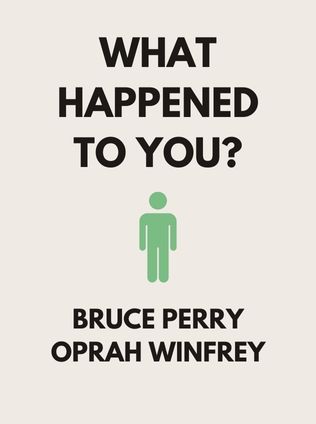
What Happened to You?
By Bruce Perry and Oprah Winfrey
Published 04/2021
About the Author
Bruce D. Perry is a distinguished psychiatrist and neuroscientist who has spent over 30 years studying the impact of trauma on the developing brain. He is the Senior Fellow of The ChildTrauma Academy, a not-for-profit organization dedicated to improving the lives of high-risk children. Perry’s work has led to significant advancements in the understanding of how childhood experiences, particularly traumatic ones, shape brain development and influence behavior. His expertise has been sought after by institutions worldwide, including the FBI and UNICEF, making him one of the leading voices in trauma research.
Oprah Winfrey, a global icon known for her empathetic interviewing style and philanthropic efforts, brings a personal perspective to the subject of trauma. Having experienced significant childhood adversity herself, Winfrey has long been an advocate for raising awareness about the effects of trauma and the importance of healing. Her partnership with Perry in "What Happened to You?" is a culmination of decades of her own reflections and commitment to understanding the long-term effects of childhood trauma.
Together, Perry and Winfrey combine scientific insights with personal experience, aiming to foster a deeper understanding of trauma and its effects on individuals and society. Their collaboration offers a unique blend of academic rigor and heartfelt empathy, making "What Happened to You?" a vital resource for anyone seeking to understand and heal from trauma.
Main Idea
The central theme of "What Happened to You?" revolves around shifting the conversation about trauma from a perspective of judgment to one of empathy and understanding. Instead of asking, "What’s wrong with you?" the authors advocate for asking, "What happened to you?" This change in framing is critical to understanding the deep and often unseen impacts of trauma on behavior, mental health, and relationships. The book emphasizes that trauma, particularly when experienced in childhood, leaves lasting imprints on the brain and body. These imprints shape how individuals perceive the world, interact with others, and navigate their own lives. By understanding these impacts, individuals and society can better support trauma survivors on their path to healing.
Table of Contents
- Understanding Trauma
- Childhood Trauma
- The Healing Process
Understanding Trauma
Trauma is a term that is often used broadly in society, but Perry and Winfrey urge us to consider its true meaning and impact. Trauma is not just an unfortunate event; it is a deeply distressing experience that disrupts normal functioning and has long-lasting effects on an individual's mental and physical health. The authors avoid providing a strict definition of trauma because of its subjective nature—what might be traumatic for one person may not be for another. However, they identify two critical factors that define trauma: the stress response it triggers and its lasting impact on the individual.
The stress response is our body's way of protecting us in dangerous or challenging situations. It can manifest as "fight or flight," where the body prepares to confront or flee from the threat, or as dissociation, where the brain numbs the body to endure the trauma. While these responses are adaptive in the short term, they can become problematic when triggered repeatedly or without actual danger.
“Trauma creates change you don’t choose. Healing is about creating change you do choose.” —Bruce D. Perry
Perry and Winfrey explain that trauma's impact on the brain is profound, often leading to lasting changes in how individuals perceive and interact with the world. The brain's primary role is to ensure survival, and when it encounters trauma, it adapts in ways that can be both protective and limiting. For example, a person who has experienced trauma may develop heightened vigilance, always on the lookout for danger. While this response might be necessary in a threatening environment, it can lead to chronic anxiety and difficulty trusting others in safer, non-threatening situations.
Childhood Trauma
Childhood is a critical period for brain development, and trauma experienced during this time can have severe and long-lasting effects. Perry and Winfrey emphasize that childhood trauma disrupts the normal development of the brain, particularly the formation of neural networks that are essential for cognitive, emotional, and social functioning. The effects of trauma are not only immediate but can also influence behavior and mental health throughout a person's life.
Sign up for FREE and get access to 1,400+ books summaries.
You May Also Like
The Subtle Art of Not Giving a F*ck
A Counterintuitive Approach to Living a Good Life
By Mark MansonRich Dad Poor Dad
What the Rich Teach Their Kids About Money - That the Poor and Middle Class Do Not!
By Robert T. KiyosakiHow To Win Friends and Influence People
The All-Time Classic Manual Of People Skills
By Dale CarnegieFreakonomics
A Rogue Economist Explores the Hidden Side of Everything
By Steven D. Levitt and Stephen J. Dubner



















